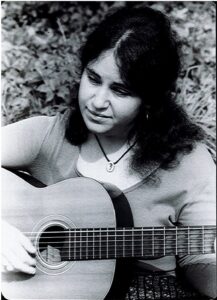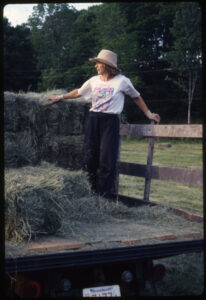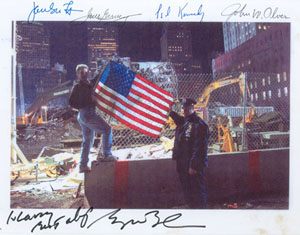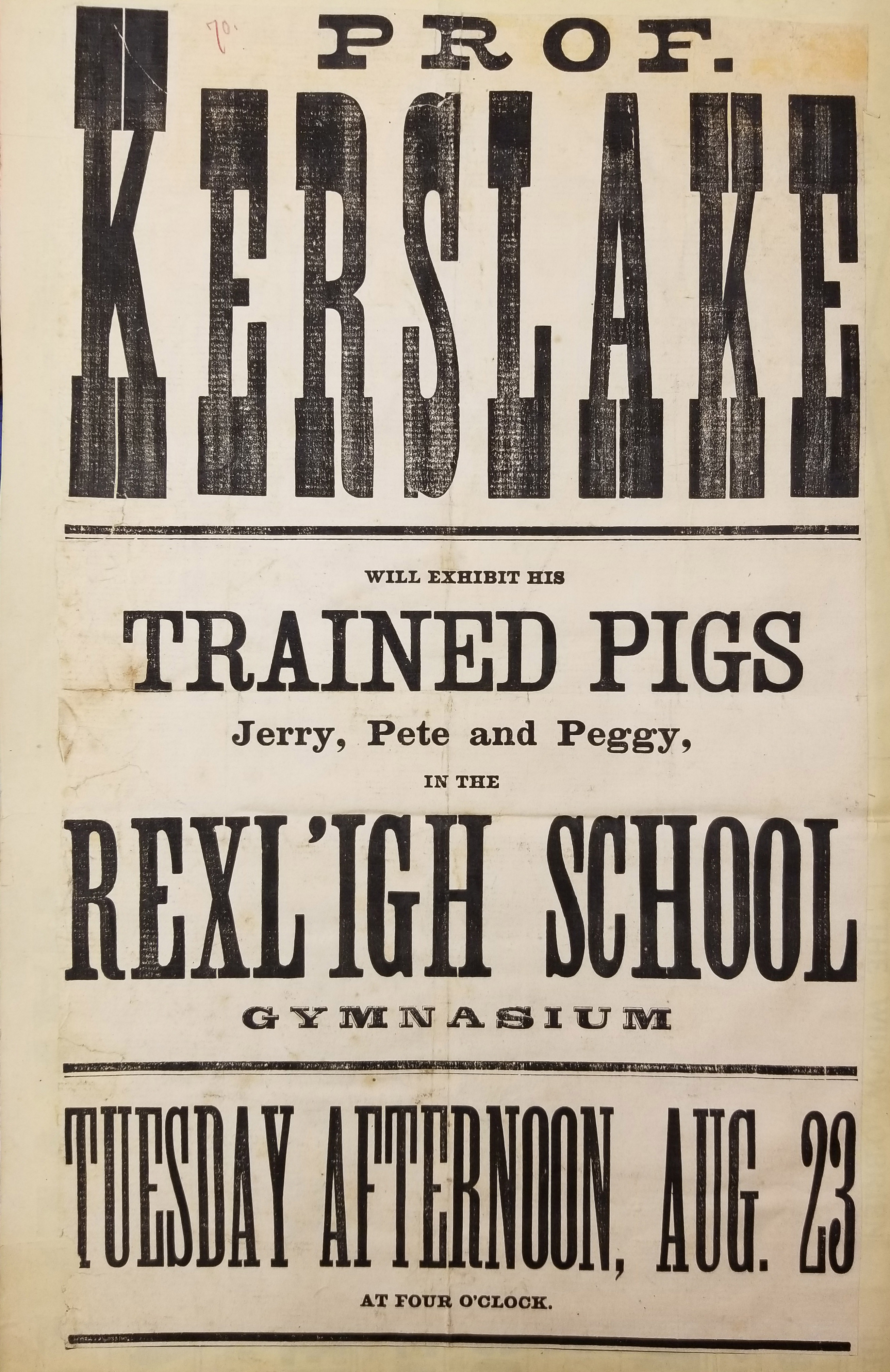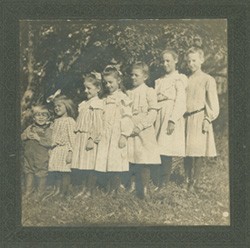Judy Polan Papers
Judy Polan was a folk musician who performed primarily throughout Western Mass and New England in the 1980s and 1990s. Born in 1948 in Albany, New York, she graduated from Barnard College in 1970 with a degree in Russian. She worked as a translator in Cambridge, Massachusetts and taught guitar lessons part-time before eventually moving to teaching and performing full time. She married Michael Schonbach in 1975 and moved to Western Mass two years later, living first in Northampton and then Chesterfield. During this period, her music career blossomed. She quickly became a favorite at local coffeehouses and other venues such as the Iron Horse Music Hall in Northampton the Sounding Board Coffeehouse in West Hartford, and Passim in Cambridge, playing both original songs and covers from a wide variety of genres. She was a four-time recipient of the “favorite musician” award in the Valley Advocate Reader’s Poll in 1985, 1993, 1994, and 1995. She was frequently played on radio stations throughout New England and Upstate New York. Polan also performed at weddings and children’s events. Her husband, Michael Schonbach often accompanied her on violin.
She released her first album, Judy, Judy, Judy in 1984 on her own record label, Ruby Slippers Records. The name was an homage to her love of the Wizard of Oz, songs from which would often feature in her shows. She was known by her fans as the “Folk Glitter Queen of New England”, due to her eclectic style of both music and costume, which often featured glittery red high heels fashioned after Dorothy’s ruby slippers from the Wizard of Oz. Over the course of her career she released two more full-length albums and one EP, Look to the Starsin 1986, Dream Dances in 1992 and Daffodils in 1996. Also in 1996, she released a musical interpretation of the poem “I Wandered Lonely as a Cloud” by William Wordsworth, which was used in a tourism campaign for the Lake District in Northwest England. During the early 2000s, Polan’s career shifted to writing, and she worked as an editor and writer for magazines such as Style 1900, Modernism and Jewish Ledger. She mainly wrote about design and travel and maintained a website and blog, Mad for Mod, throughout the 2010s. She also wrote humorous audio memoir essays that were featured on the Albany, NY NPR affiliate, WAMC. She also published a book of poetry, Glasgow Colours at a Decorative Arts Programme at the University of Glasgow. Her husband Michael passed away on June 16, 2022.
The Judy Polan Papers contain material from throughout Polan’s career as a working musician. This includes promotional materials such as concert flyers, profiles in local publications, business and personal correspondence, sheet music, and lyrics. It also contains several dozen recordings contained on different formats such as reels, cassette tapes, records and CDs. These consist of commercial releases, live shows, radio appearances, demo recordings, and master tapes. Polan’s ruby slippers, that she wore during performances, are also part of the collection.


